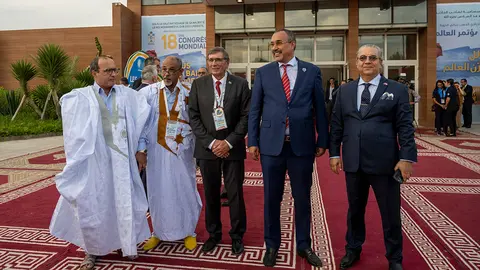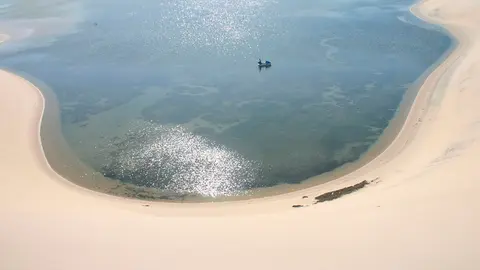The World's Most Beautiful Bays strengthen their international coordination
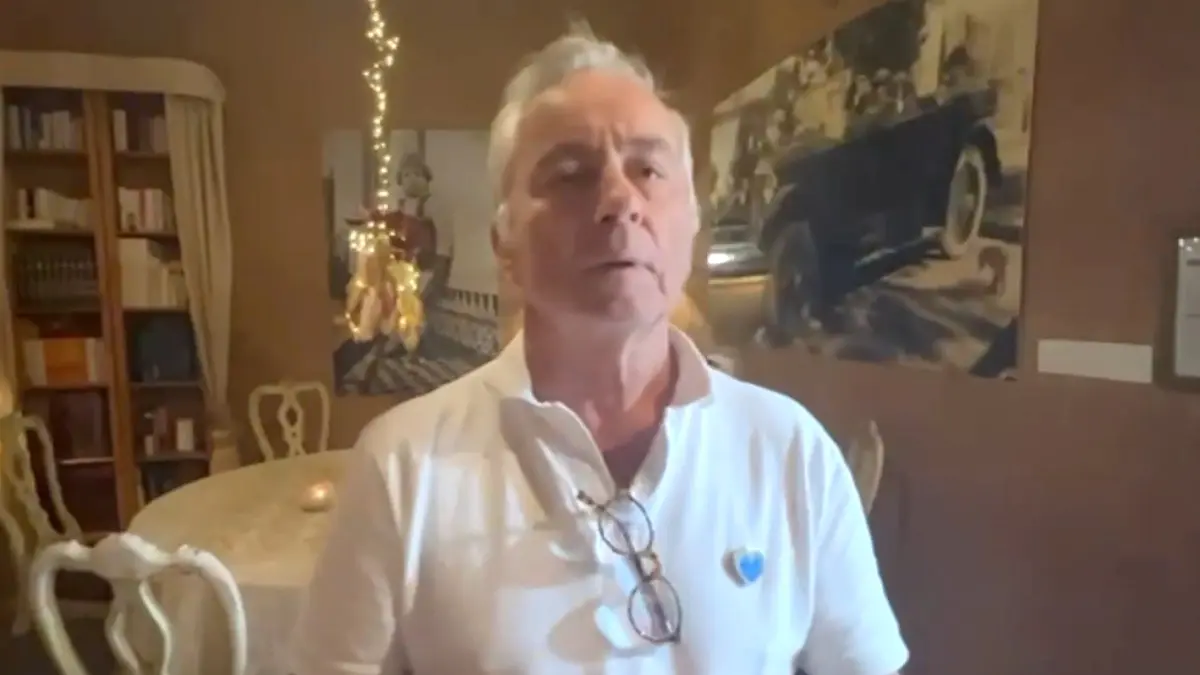
Dakhla hosted the 18th edition of the International Congress of the World's Most Beautiful Bays.
A very special edition because it was held for the first time under the High Patronage of His Majesty King Mohammed VI of Morocco.
The bays associated with the World's Most Beautiful Bays Association took part in this Congress, which focused on protecting the environment and promoting sustainable development.
Atalayar spoke with Bruno Bodard, co-founder of the World's Most Beautiful Bays Association and incoming president in September 2025 for 3 years. He will take office starting with the next Congress, to be held in 2025 in Canada.
Have the objectives of this Dakhla Congress been achieved? What would you highlight from the conclusions and the work that has been done?
Yes, we have worked on international coordination between the bays, on common issues.
The special thing is that we are all inhabitants of the coast and we reflected on our common environmental problems. And the exchanges have been very fruitful, especially on new technologies and environmental protection.
And the experience with the children has been fantastic, as we are going to work a lot on educating children about the environment.
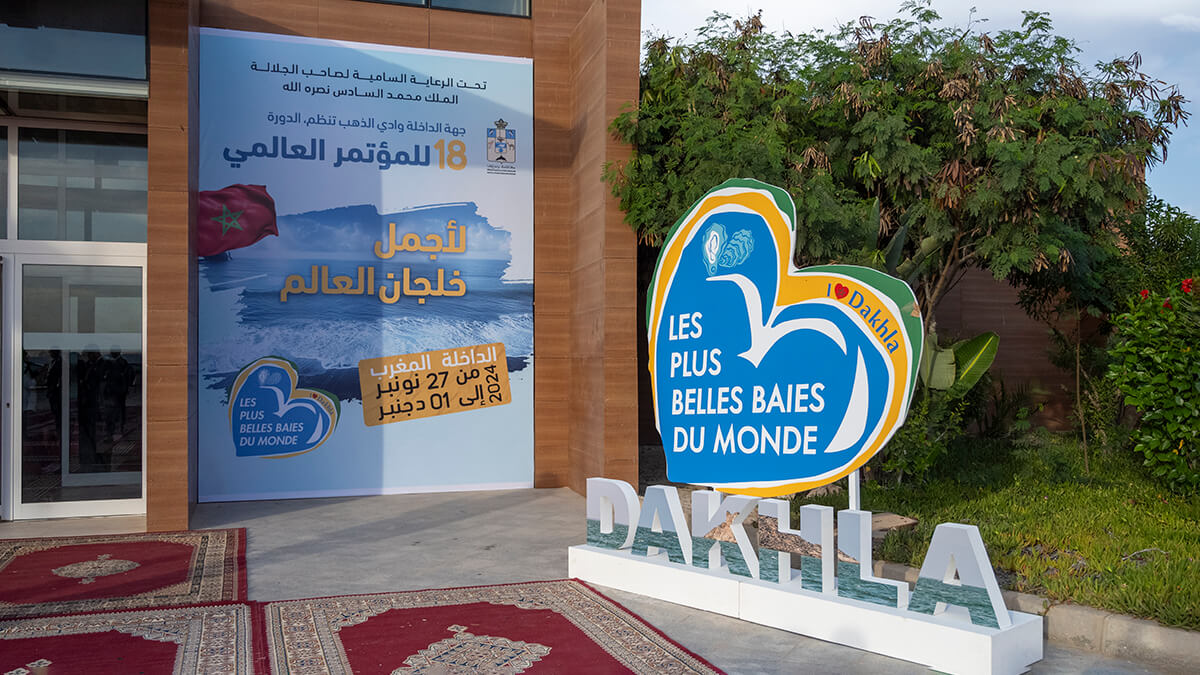
Is there a real awareness in society about the need to protect the world's bays?
Yes, more and more. When we created this organisation 30 years ago, we were taken for granted. What does it want to do today? The association, the International Organisation, works.
People all over the world are aware of the need to think about the environment, the coastline, marine litter, which is a problem today, and the strength of our organisation is that we are flexible, we are international and we want to work more closely with international organisations such as the United Nations.
What are your goals for Canada?
My wish is to work more on educating children about the environment, in collaboration with international organisations.
We will already be present at the UN World Ocean Conference in Nice in June. But we will work to be even more present at UNESCO and UNICEF to get our message across to local residents, mayors and through events and activities with children.
Were you surprised by Dakhla and what did you think of the city?
It's been great. It's an extraordinary place of discovery, it was a magnificent, magnificent welcome, and it shows, the delegates are happy with the welcome and happy with the exchanges we've been able to have with each other.
So there is a lot to be pleased about, and personally I am delighted with the whole thing.
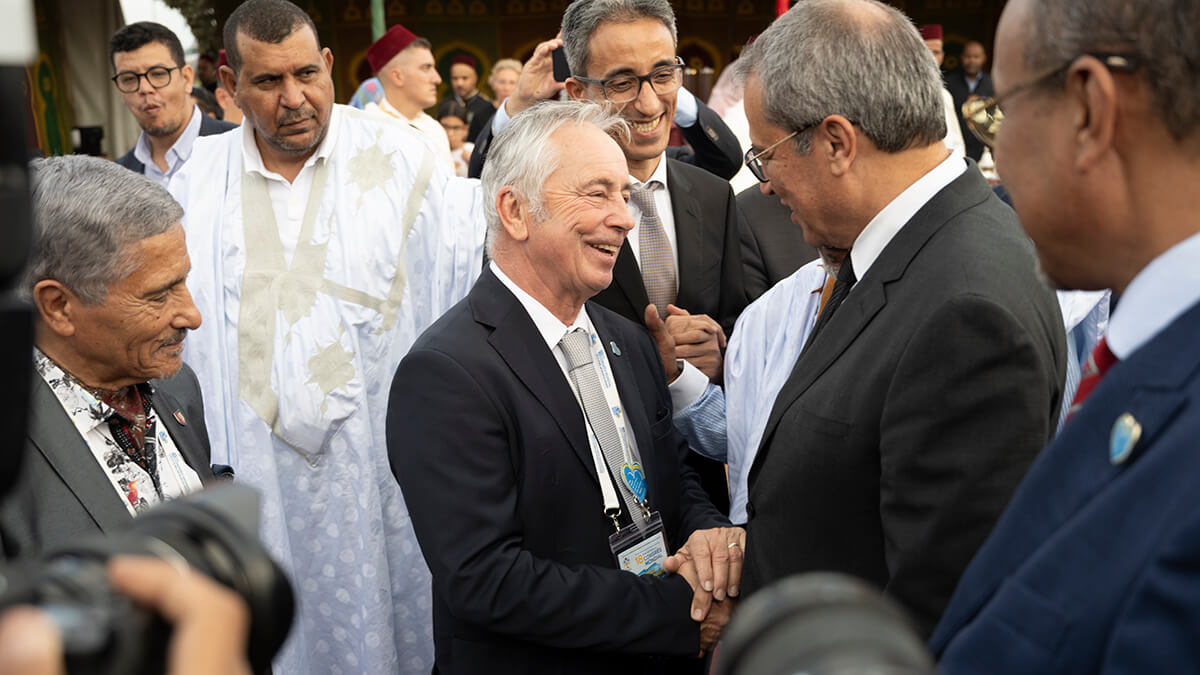
The concern of the Most Beautiful Bays in the World Association is to preserve biodiversity and the environment above political issues, as demonstrated by the holding of this Congress in Dakhla.
Yes, we are not a political organisation. We are here to help, to make people living in the bays aware of the need to protect their environment, and to set an example to other towns and cities, and internationally.
So we are more of an encouragement, an impulse to say: here we are, thinking about a new technology, how we can do this. So we are a meeting point to exchange experiences and information on what we can do to improve the situation. And I'm thinking in particular about future generations.
What would you say to other bays in the world that are not yet in the association to join you? What does the association offer?
We have this strength of exchange, and we are going to strengthen it thanks to new technologies, especially with children. And what makes us special is our flexibility and our ability to exchange ideas all over the world.
Great experiences can be made everywhere, so we are not here to judge, but to exchange ideas, to share the problems we are facing, for example on pollution, on plastics, on how to deal with water.
Water will be a key issue. So we are the gatekeepers, the beacons of the problems, to be at the forefront of the issues that we have to ask ourselves as inhabitants of our bays.
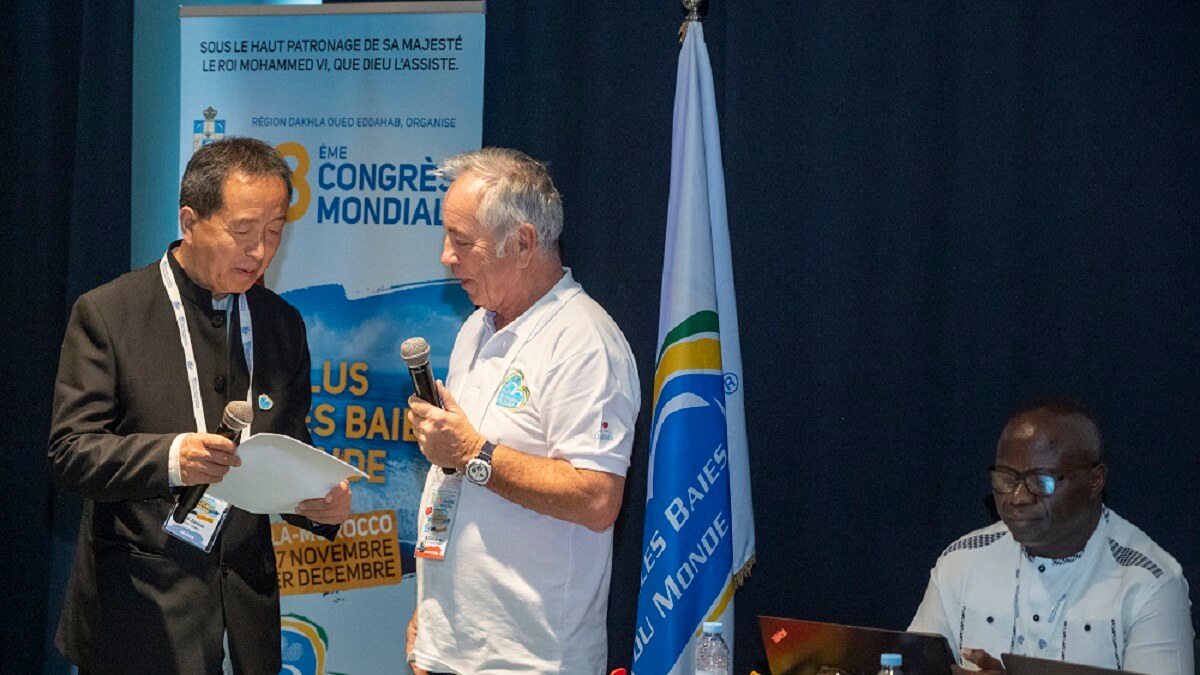
From Atalayar we try to promote and disseminate this association, which has a very important role to play. There are very few bays in Spain. What could you say to the Spanish people who have many kilometres of coastline and many bays to encourage them to join the Association?
We see that environmental management of the coasts is fundamental, and we would love to have a bay in the Balearic Islands. And also in the Canary Islands. At the moment we only have 2 bays: Roses and Santander.
It is not enough, because Spain is an important point for the Mediterranean, the Atlantic coast and the islands. So we want to develop our organisation in Spain. I would like to thank you because you are a great way to get our message to other parts of Spain.
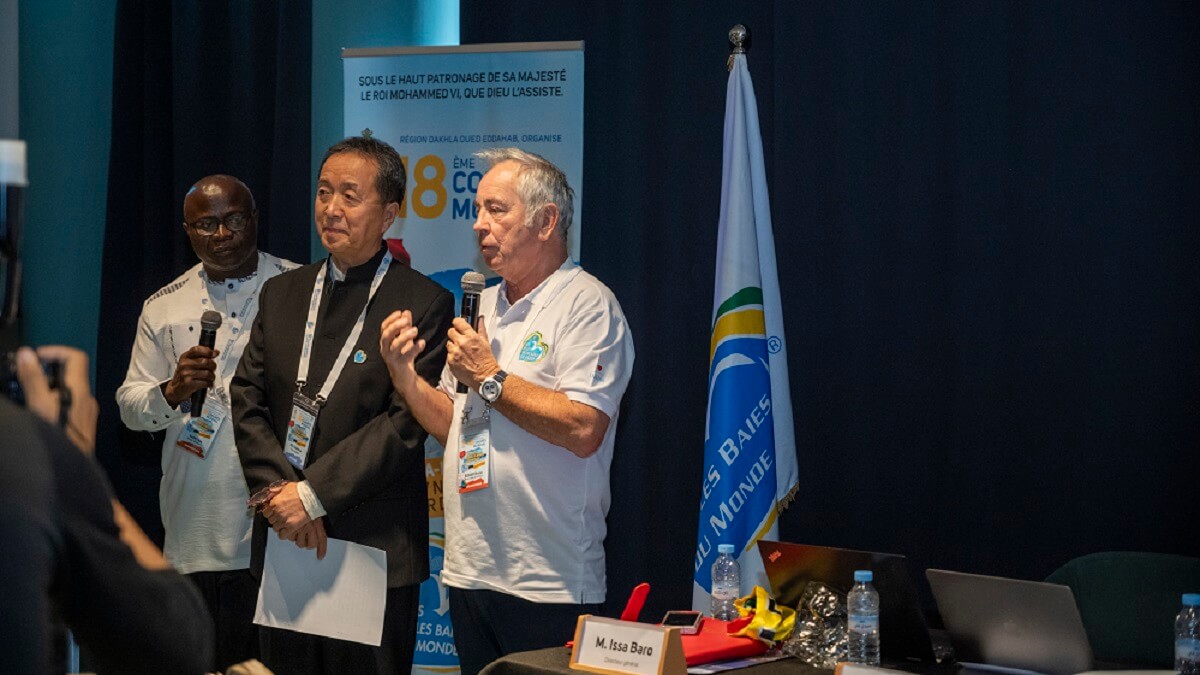
Finally, next year in Canada, where the next Congress will be held, what would you like this association to have achieved?
It is the recognition of international organisations. We are a stakeholder in the summit, in the World Ocean Conference, and we are going to continue and propose a certain number of actions that we have already set out in the Charter, as all of you here have signed.
And so we want our partnership to develop, to last and to become an example for people, to help them, to reinforce this important feeling of pride in living in exceptional places, of being the guarantors of the need to protect ourselves and the rest of the population.
Congratulations on the work and the conclusions reached in Dakhla.
I thought the discussions we had were great.
The welcome was magnificent, it is an extraordinary region to discover, there is a potential with a management that we are going to have to organise because we see that it is a very attractive area. And what there is on the ground, we have seen the possible developments, the possible dangers, and therefore it has been a magnificent testing ground for our organisation.


